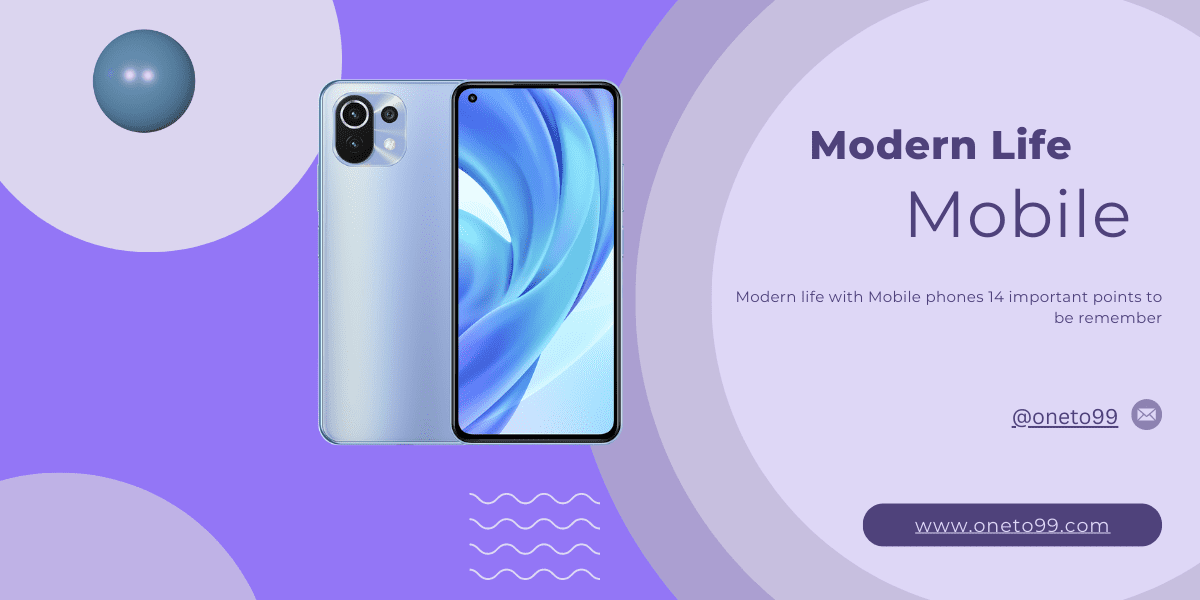Modern life and mobile phones are closely intertwined, with mobile phones becoming an integral part of our daily routines and social interactions. Mobile phones have revolutionized the way we communicate, work, and access information, enabling us to stay connected and informed on the go.
In today’s fast-paced world, mobile phones have become essential tools for staying connected to family, friends, and colleagues, regardless of time and distance. With the ability to make calls, send texts, and use social media and messaging apps, mobile phones have made communication more accessible and efficient than ever before.
Mobile phones have also transformed the way we work, enabling us to access emails, files, and other important documents from anywhere at any time. This has led to greater flexibility and productivity, allowing people to work remotely or from different locations.
In addition to communication and work, mobile phones have also become an essential tool for entertainment and leisure. With the ability to stream music, watch videos, and play games, mobile phones have become a primary source of entertainment for many people.
While mobile phones have brought many benefits to modern life, there are also concerns about their impact on mental and physical health, privacy, and social interactions. As technology continues to advance, it is important to balance the benefits of mobile phones with the potential risks and challenges they pose to modern life.
Modern Life and Mobile phones? 14 notable important points
While mobile phones have become an integral part of modern life, there are still some unknown or uncertain aspects surrounding them. Here is a list of some unknown information about mobile phones:
- Long-term health effects: The long-term health effects of mobile phone use, particularly with regard to radiofrequency (RF) radiation exposure, are not yet fully understood. While some studies have suggested a potential link between mobile phone use and health issues like cancer or neurological disorders, other studies have found no such connection. More research is needed to establish definitive conclusions.
- Effects on mental health: The impact of mobile phones on mental health is still an area of ongoing research. While some studies suggest that excessive phone use can lead to increased stress, anxiety, and depression, it is unclear whether this is a direct result of mobile phone usage or related to other factors.
- E-waste management: The environmental impact of mobile phone waste is not fully understood, particularly as the number of discarded devices continues to grow. Improper disposal of e-waste can lead to soil, water, and air pollution, but there is still more to learn about how to mitigate these effects and promote sustainable practices.
- Future technological developments: While mobile phones have come a long way since their inception, it is unknown what future advancements in technology will bring. Innovations in areas like battery technology, 5G connectivity, and device materials could revolutionize the way we use and interact with our phones.
- Mobile phone addiction: The extent to which mobile phone addiction is a genuine psychological disorder remains a topic of debate among experts. More research is needed to understand the nuances of this potential issue and to develop effective interventions to address it.
- Cybersecurity risks: Mobile phones are vulnerable to various cybersecurity risks, including malware attacks, data breaches, and identity theft. As mobile devices increasingly store sensitive personal information, it is important to continually develop and implement effective security measures to protect users’ privacy and security.
- Social and cultural implications: The widespread adoption of mobile phones has had a significant impact on social and cultural norms. Some argue that the constant connectivity and instant gratification facilitated by mobile phones can lead to a loss of interpersonal communication skills and a decline in face-to-face interactions. Others see the benefits of increased access to information and the ability to connect with others from different backgrounds and cultures.
- Economic implications: The mobile phone industry has become a major player in the global economy, generating significant revenue and providing jobs for millions of people. However, the industry’s reliance on low-wage labor and the extraction of rare earth minerals raises ethical concerns about the exploitation of workers and the environmental impact of mining.
- Legal and regulatory issues: The use of mobile phones is subject to various laws and regulations, including those related to privacy, data protection, and intellectual property rights. As technology continues to advance, it is important to continuously review and update these legal and regulatory frameworks to ensure they remain relevant and effective in protecting users’ rights and interests.
- Impact on children’s development: While mobile phones have become ubiquitous in many households, their impact on children’s cognitive, social, and emotional development is not fully understood. Some studies suggest that excessive screen time can lead to negative effects on children’s attention span, language development, and social skills.
- Effects on sleep: The blue light emitted by mobile phones can interfere with sleep patterns, making it harder to fall asleep and stay asleep. Additionally, the constant notifications and need to check messages can lead to disrupted sleep patterns and increased fatigue.
- Impact on productivity: While mobile phones have made it easier to stay connected and work remotely, they can also be a distraction that interferes with productivity. Constant notifications and the temptation to check social media or other apps can lead to decreased focus and efficiency.
- Privacy concerns: Mobile phones can collect a vast amount of personal data, including location, browsing history, and contacts. While many apps and services require users to agree to privacy policies, it is not always clear how this data is being used or who has access to it.
- Impact on physical activity: Mobile phones have made many aspects of daily life more convenient, but they can also contribute to a sedentary lifestyle. Spending too much time sitting and looking at screens can have negative effects on physical health, including increased risk of obesity and cardiovascular disease.





